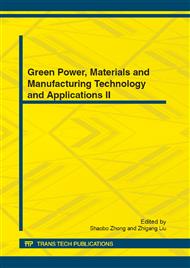p.644
p.649
p.654
p.659
p.664
p.669
p.674
p.679
p.684
Study of Physics Experiment Teaching System Based on Virtual Reality Technology
Abstract:
With the rapid development of the Internet, a remote education assistant system (REAS) is developed to aid the VPETS to be used over the Internet. It is designed in Client/Server mode and is based on virtual reality. It is composed of three parts: the server, the teacher client and the student client. It extends the VPETS to an Internet version and realizes the management of the experiment reports over the Internet. Thus, it can be used for distributed remote teaching and management, freeing teachers and students from the restriction of space and time and stimulating their go-aheadism. It has several advantages: stability, security, and expandability.
Info:
Periodical:
Pages:
664-668
DOI:
Citation:
Online since:
November 2012
Authors:
Price:
Сopyright:
© 2012 Trans Tech Publications Ltd. All Rights Reserved
Share:
Citation:


